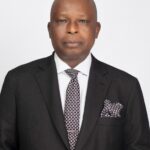It is important to set the records straight about the Societe General Bank of Nigeria because of the public’s right to factual information, particularly about public figures. In doing that, however, it must begin on the CBN’s poor regulatory work and the NDIC’s failure in performing its statutory role. For several years, news reports, rumors and sponsored malicious attacks have linked the supposed downfall of the Societe Generale bank to the President of the Senate, Dr, Bukola Saraki.
These reports are false and I will like to explore what really happened to Society Generale Bank and their numerous customers after the Central Bank of Nigeria (CBN) made the wrong decision to terminate its license.
In 2004, the CBN issued guidelines and incentives on consolidation in the Nigerian banking industry where banks were encouraged to recapitalize (by injecting funds into the banks) to the tune of 25billion Naira by December 31, 2005 or merge or be acquired. SGBN embarked on the exercise for merger or acquisition by other banks.
The CBN closed down SGBN in January, 2006 on account of failure to meet new minimum capital requirements US41.55million (N25bn) for a national bank. Meanwhile, one of the conditions was for SGBN to seek and obtain a forbearance of about 80-100% of its debts. SGBN was only granted the forbearance by the same CBN on January 5th 2006 after the deadline had elapsed.
SGBN dragged CBN to court immediately and in a judgment delivered by Justice Murtala Nyako in 2009, the Federal High Court reversed the revocation of SGBN’s operational license and declared that the CBN had overstepped its regulatory boundaries, Justice Nyako stated that the revocation was perpetrated in bad faith and was therefore null and void.
The CBN kicked and appealed the judgment as opposed to granting the license back immediately as the court had ordered, this phase went on for another year before the Central Bank returned SGBN’s license as a regional bank and withdrew its appeal.
SGBN then rebranded and returned as Heritage bank in 2012 after meeting the new requirements by the CBN and AMCON after which it commenced an exercise to revalidate the accounts of old customers to give them the opportunity to either withdraw their money or reactivate their accounts with the bank.
Some of the stories being bandied around is that so many people lost their live savings to the bank leading to tragic stories, if any of this is indeed true the fault lies directly with the CBN that went ahead to revoke SGBN’s license in bad faith and the Nigerian Deposit insurance Corporation (NDIC) for not living up to its statutory role.
During the needless legal tussle between SGBN and CBN, the NDIC should have done its statutory role of repaying depositors with less than 200,000 at the very least while others get paid on a pro-rata basis from proceeds of possible liquidation, this is the exact reason it was set up.
As at 2013, barely a year after operations, Heritage Bank declared that customers have withdrawn over 60% of the 21bn deposit base it inherited from SGBN. Today, Heritage Bank claims they have completed the exercise 100 percent.
Femi Salako, Lagos
 Join Daily Trust WhatsApp Community For Quick Access To News and Happenings Around You.
Join Daily Trust WhatsApp Community For Quick Access To News and Happenings Around You.


